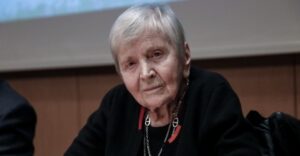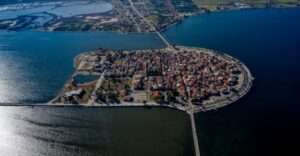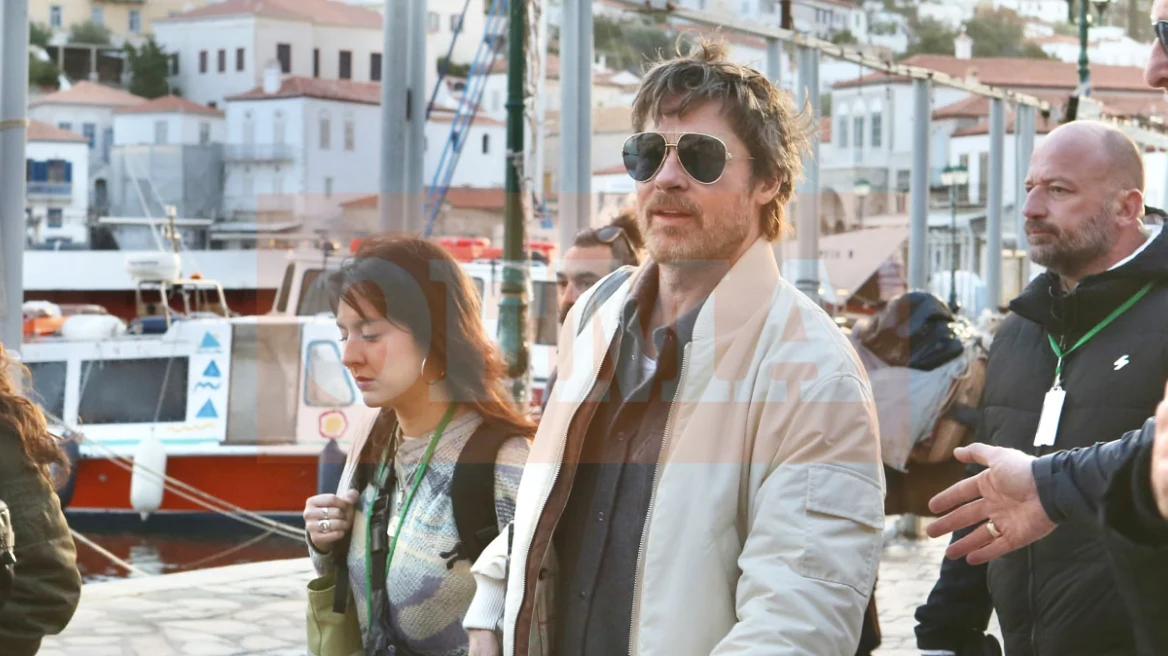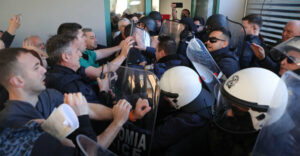*
I was eager to listen to Turkish Prime Minister Recep Tayyip Erdogan’s speech to the United Nations General Assembly. As a prominent player in the Cyprus dispute, I was hoping to hear about the efforts he is taking to resolve the island’s decades-long crisis. Instead, despite his calls to combat injustice and to find solutions the international community can achieve together, he is clearly determined to single-handedly prevent peace and reconciliation on Cyprus.
In a gross rebuke of the United Nations and the will of Greek and Turkish Cypriots working to reunify Cyprus, Mr. Erdogan and the Turkish occupation authorities in Cyprus have initiated the process of opening Varosha, the abandoned southern quarter of Famagusta, for settlement under Turkish control. Mr. Erdogan fully realizes the harm this will do to reunification talks between the two communities, but he clearly does not care. This move greedily prioritizes his aspirations for Turkey at the expense of the people of Cyprus.
The tragic story of Varosha is perhaps the quintessential embodiment of the irreparable harm Turkey’s direct interference has had on the island for the past 45 years. Varosha once held international recognition as one of the most popular tourist destinations in the world, but that ended after the Turkish military invasion of 1974 and subsequent closure of the city. Since then, the Cypriots chased out of Varosha have had no recourse and no ability to return to their homes.
Turkey has held Varosha hostage for decades, despite the two Cypriot communities’ intention to reach agreement on the resettlement of its lawful inhabitants. The 1979 High Level Agreement made it clear that the resettlement of Varosha was a unified Cypriot priority, that both sides were open to such acts of goodwill, and that the United Nations should play a role in the resolution to the Cyprus problem.
Turkey disregarded the will of the Cypriot people at that time, and it continues to disregard the United Nation’s legitimacy on this issue, specifically U.N. Security Council Resolutions 482, 550, 789 and 2483. The Republic of Cyprus continues to maintain the return of Varosha as a cornerstone of confidence building measures with the Turkish Cypriots, including joint ventures seeking to restore the dilapidated city. Indeed, the present government of the Republic of Cyprus proposed a Confidence Building Measure (CBM) that would have turned Varosha over to U.N. control and allowed the Turkish-Cypriot port of Famagusta to trade with the world under EU auspices. The Erdogan government and Turkish occupation authorities in Cyprus rejected this win-win proposal and decided to keep this one-time jewel of the Eastern Mediterranean a ghost town.
Greek and Turkish Cypriots have both been frustrated over decades by the failure to reunify and bring peace to their common home. Still, the two communities recently agreed on more than they ever have before; now is the time to move forward and build on these convergences. The way to do that is to comply with U.N. Security Council Resolutions and use Varosha to build confidence and cooperation, not to exacerbate existing divisions and illegal actions.
In his address, Mr. Erdogan quoted the renowned scholar and poet Rumi’s description of justice as “sharing amongst the people the rights and obligations appropriately and allocating them what they are entitled to.” I say to Prime Minister Erdogan: The Cypriot people have the right to decide the future of their country without direct Turkish interference and the displaced Cypriots are entitled to return to their homes in Varosha. The people of Cyprus want and deserve resolution, and you have no right to inhibit that.
*Gus M. Bilirakis, a Republican U.S. representative from Florida, is co-chairman of the Congressional Hellenic Caucus and co-chairman of the Congressional Hellenic Israel Alliance Caucus.
Source: washingtontimes
Ask me anything
Explore related questions





